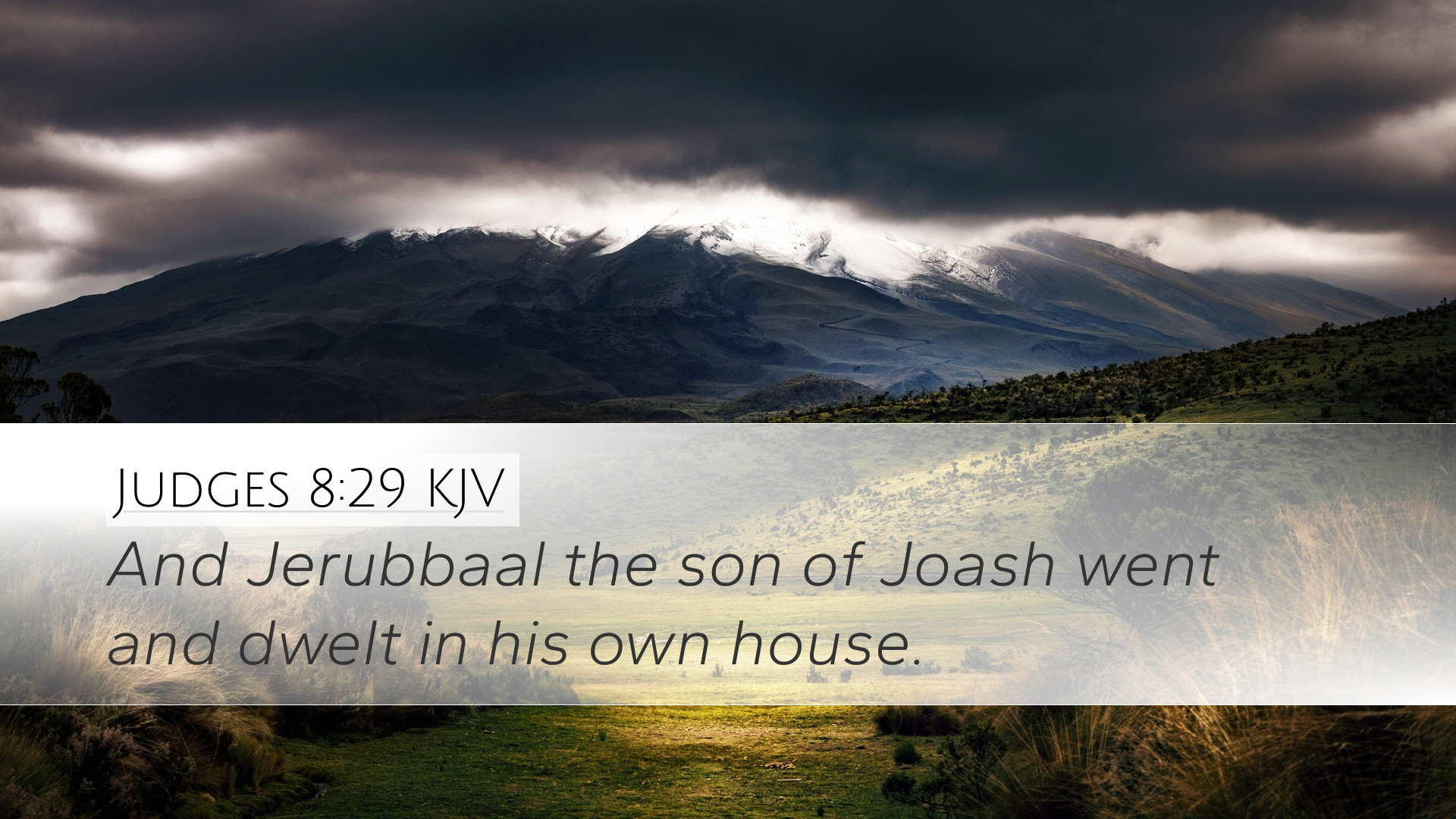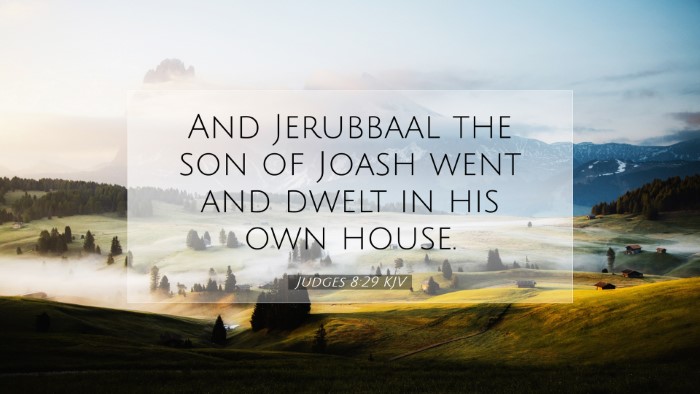Commentary on Judges 8:29
Judges 8:29 states, "And Jerubbaal the son of Joash went and dwelt in his own house." This passage marks a significant transition in the narrative of Gideon, also known as Jerubbaal. An exploration of this verse reveals deeper theological and contextual insights.
The Context of Gideon's Leadership
In the context of the Book of Judges, Gideon is one of the key figures who leads Israel against their oppressors, specifically the Midianites. Following his victory, the mention of his returning to his own house is laden with implications regarding leadership in Israel.
- Restoration of Peace: Gideon's return to his home signifies the restoration of peace in Israel after years of oppression.
- Personal Reflection: His dwelling in his own house could indicate a necessary time for reflection and adjustment after the tumultuous events of battle.
- Transition to Normalcy: This return symbolizes a shift from a state of conflict to normalcy, as Israel seeks stability in the absence of foreign domination.
Examining this return is crucial for understanding both Gideon's role and the dynamics of leadership in times of crisis.
The Significance of the Name Jerubbaal
The name Jerubbaal carries considerable weight, as it was given to Gideon after his actions against Baal's altar.
- Identity in God’s Deliverance: The name itself translates to "Let Baal contend," pointing to Gideon's role as a warrior who contends for the Lord.
- God’s Sovereignty: This name serves as a reminder to the Israelites that God is sovereign over all spiritual warfare, establishing Gideon as a divinely appointed leader.
In the backdrop of this name, the return to his house becomes not just a personal journey but a call for the nation to remember the one who leads them in faith.
Judges 8:29 in the Broader Theological Framework
This passage serves as a pivotal moment that reflects the character of God and His guiding hand in Israel’s history.
- God's Faithfulness: The transition from the oppression of the Midianites to the peace under Gideon’s leadership showcases God's faithfulness to His people.
- Restoration and Hope: This verse also emphasizes the themes of restoration and hope that permeate throughout the Book of Judges.
Gideon’s actions can be seen as a foreshadowing of the ultimate deliverance found in Christ, who comes to restore our brokenness.
Practical Applications for Today’s Believer
For pastors, students, and theologians, the implications of Judges 8:29 resonate with several contemporary lessons:
- Leadership in Peace: The importance of leaders retreating to their own 'homes' or foundations to regroup and reflect on their God-given mandates.
- Wrestling with Identity: The significance of self-identity in Christ, analogous to Gideon’s own naming as Jerubbaal, speaks to how believers should identify themselves based on God’s calling and work.
- Hope and Restoration: The promise of God's restoration in our lives today can find inspiration from Gideon's return, providing a foundation for ministry and personal faith journeys.
In essence, Judges 8:29 not only recounts history but invites us into an ongoing narrative of faithfulness, identity, and hope that spans the ages.
Conclusion
Gideon's return to his home encapsulates the essence of leadership, faith, and God's unwavering fidelity. Judges 8:29 resonates with the calling we share as followers of Christ, to bring restoration and hope to our communities, just as Gideon aimed to restore peace in Israel. In closing, may this passage inspire deeper reflection on our roles as mediators of God's peace and agents of His Kingdom.


